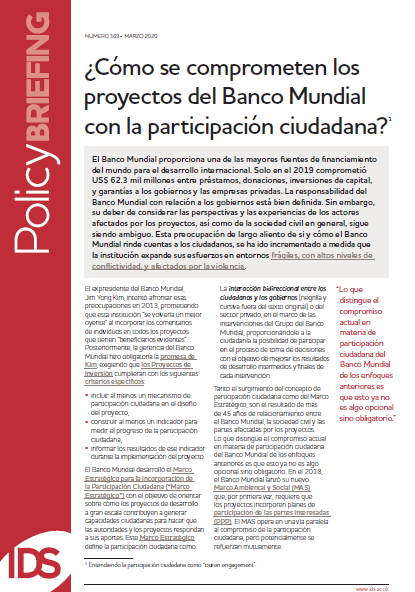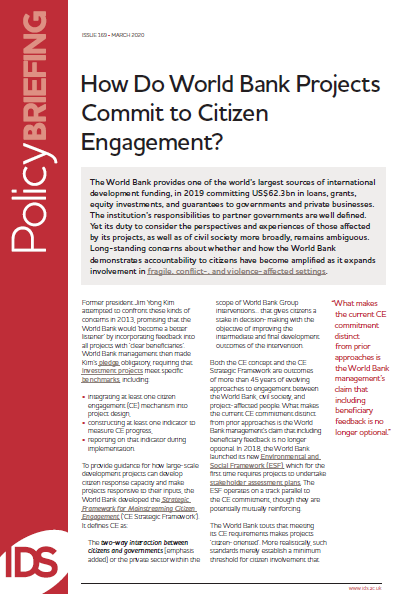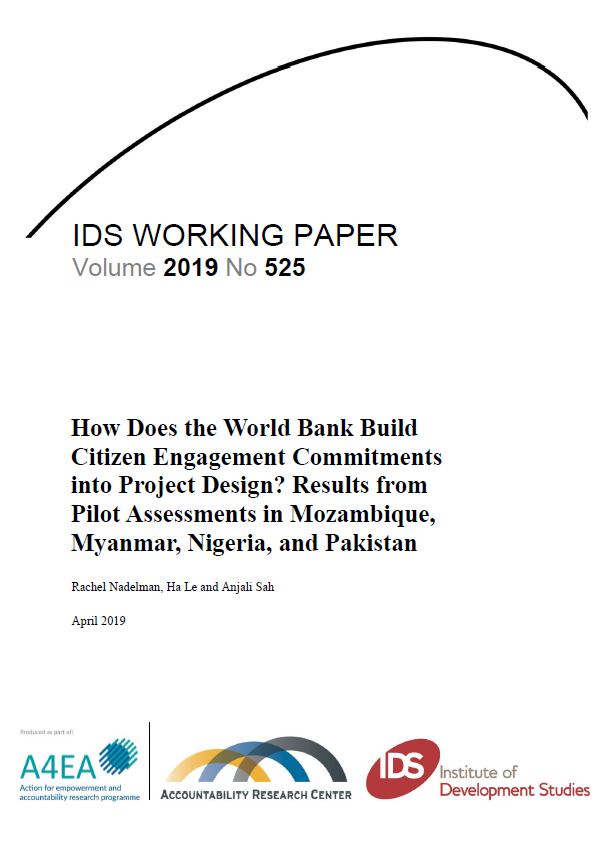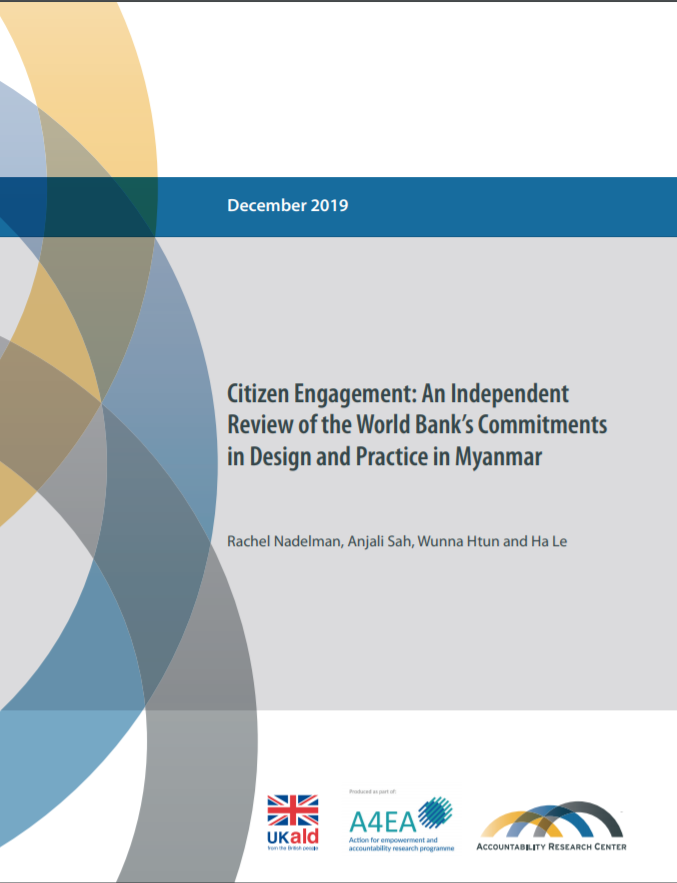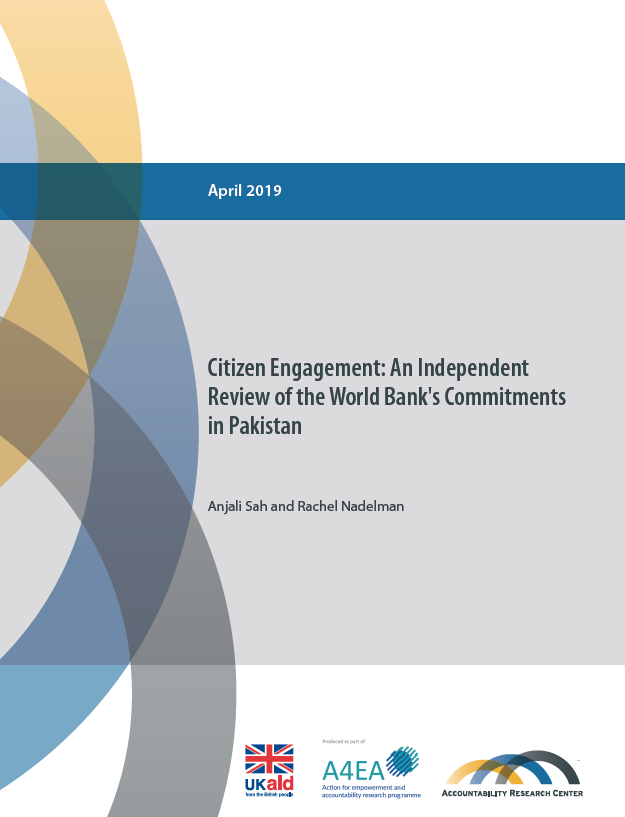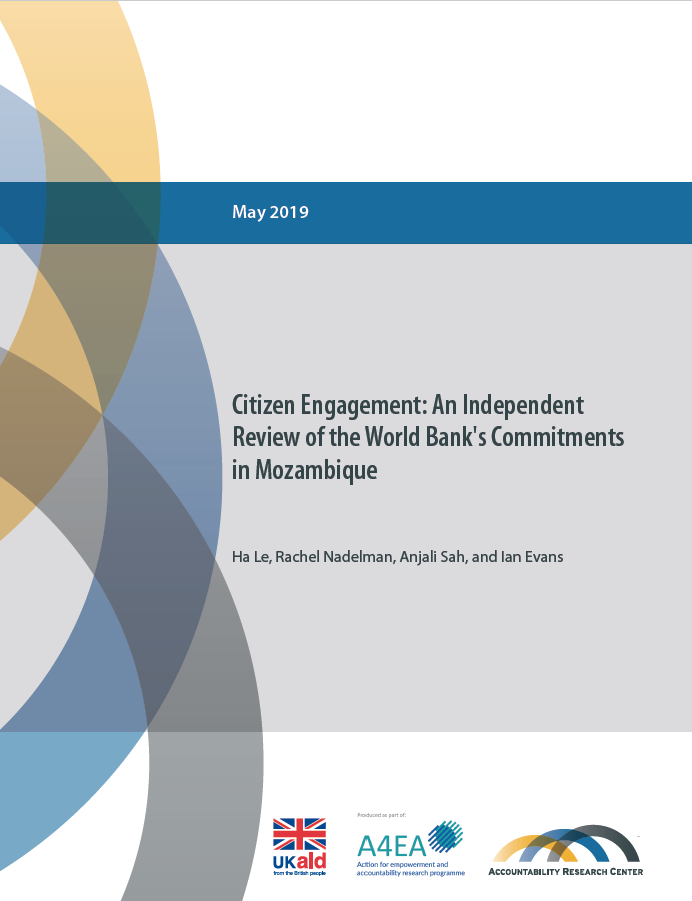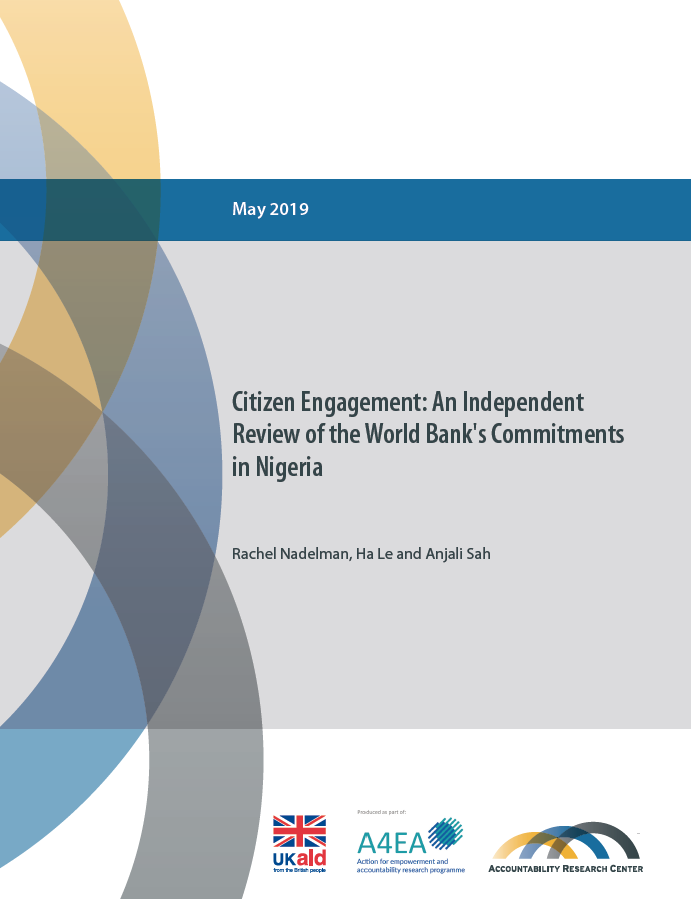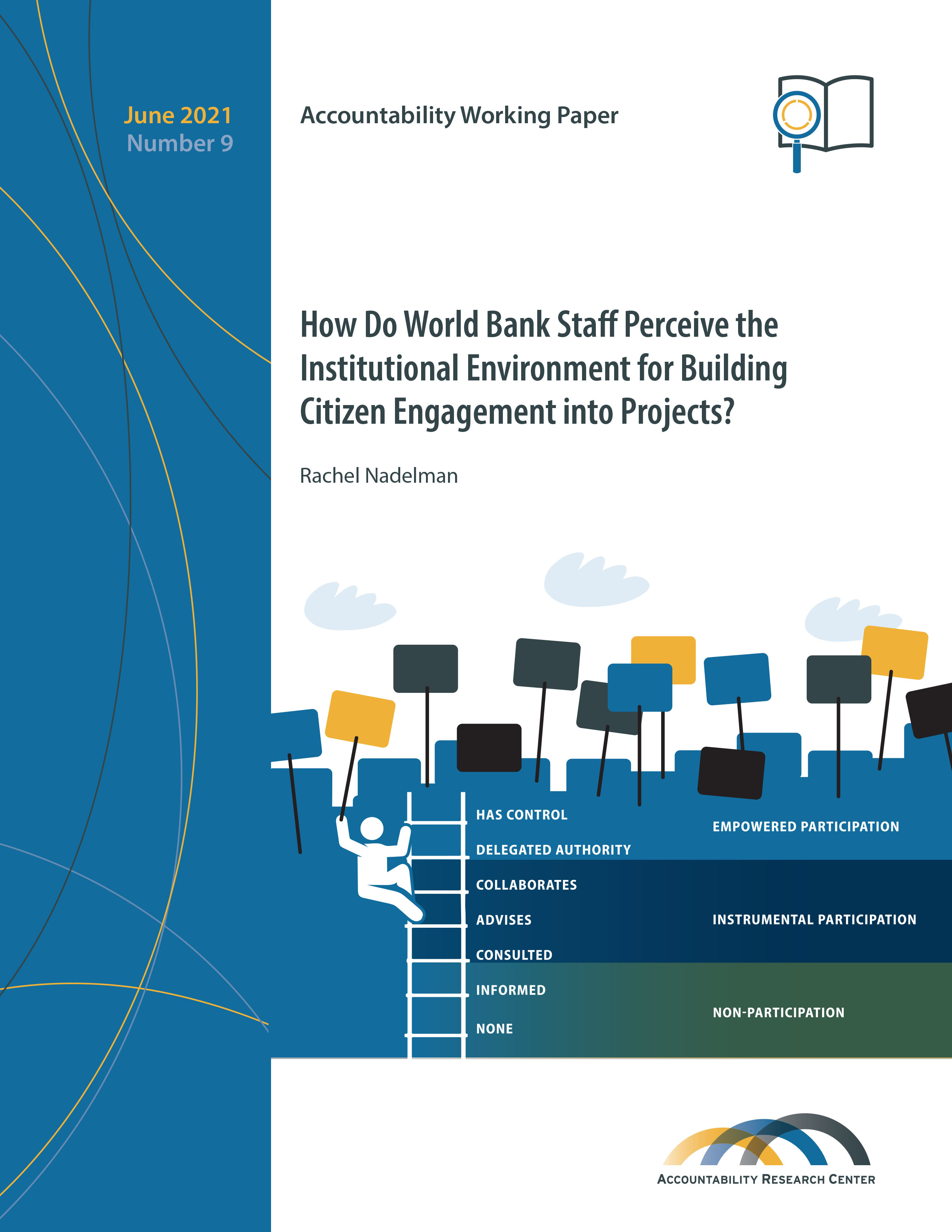
How Do World Bank Staff Perceive the Institutional Environment for Building Citizen Engagement into Projects?
Date: June 2021
Author(s): Rachel Nadelman
Publication type: Working Paper
Published by: Accountability Research Center
How do World Bank staff perceive institutional opportunities and bottlenecks for undertaking citizen engagement (CE) as part of projects? The Accountability Research Center (ARC) at American University sought to answer this question by going beyond formal institutional directives and asking the staff themselves. ARC interviewed 30 World Bank staff involved with stakeholder and civic engagement in different capacities. Respondents represented the World Bank’s six administrative regions and a range of Global Practices, as well as operational, analytic, advisory, and managerial roles. The Open Society Foundations funded this independent research, which took place in consultation with senior World Bank management, without their direct involvement in the research or writing. During the February–August 2019 research period, the World Bank initiated an internal restructuring process which included changes to the leadership of the citizen engagement agenda. This report offers important insights that continue to be relevant for the Bank’s crucial CE work, particularly for its Citizen Engagement and Social Accountability Global Solutions Group in the new Social Sustainability and Inclusion Global Practice. The findings can also contribute to the efforts of public interest groups interested in strengthening the World Bank’s work in this area. The main findings resulting from this qualitative survey of World Bank staff perceptions include:
- Staff overwhelmingly credited the World Bank’s mainstreaming commitments for having increased the prominence of CE across the institution and expanding its visibility in projects. However, most viewed incentives as geared toward meeting minimum standards rather than achieving maximal impact;
- The primary internal promoters of the CE agenda, Regional and Global Practice Focal Points, are hampered by significant time and financial constraints. The institutional emphasis on compliance with minimum project design standards has meant that most do not know if or how the design commitments are carried out in practice;
- Staff consistently cited a lack of reliable, dedicated funding for CE monitoring and follow-up support for why advancements in design would not translate into improved CE in practice;
- Staff perceived that those World Bank regions and sectors that pursued CE most ambitiously and consistently were those whose management actively sought visibility for the agenda and proactively advocated for and secured dedicated funding;
- There is limited strategic coordination between the Bank’s CE agenda and its new Environmental and Social Framework (ESF), which establishes standards for stakeholder engagement and information disclosure. Unlike the CE agenda, the ESF introduces policy reforms supported by strict guidelines, dedicated staff, and uniquely robust monitoring and enforcement apparatus. More consistent attention to finding synergy would allow the CE program to leverage the ESF’s strengths while bolstering the unique aspects of CE that the ESF does not cover.
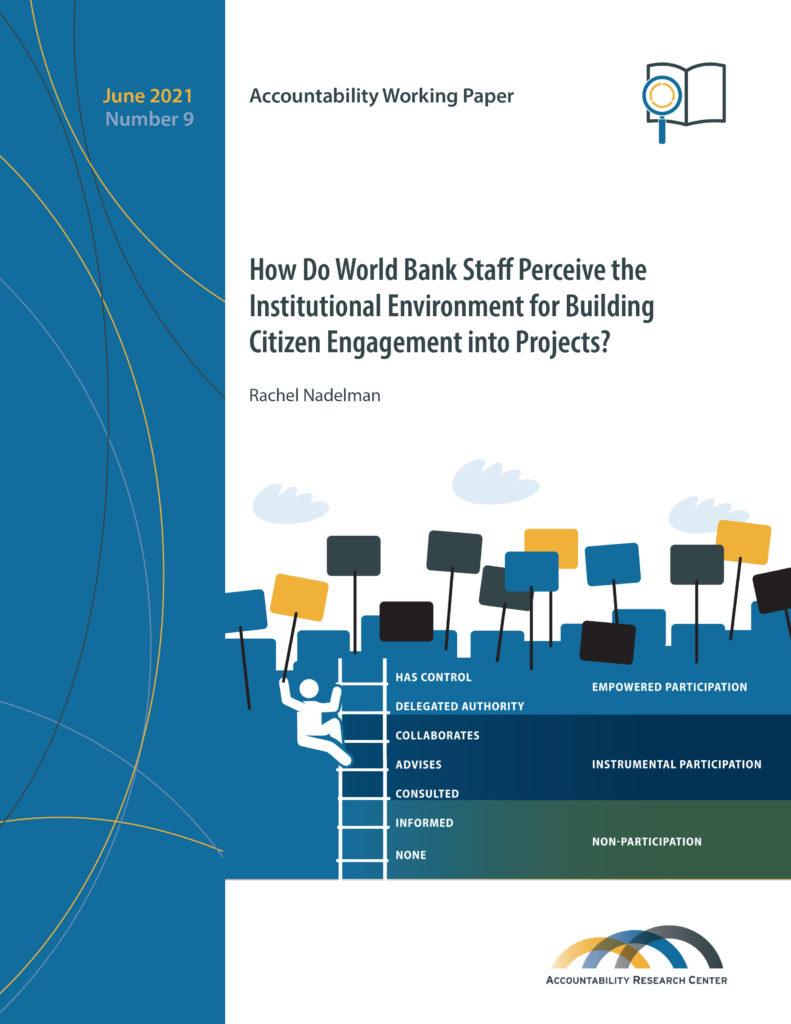
Rachel Nadelman Rachel Nadelman joined the Accountability Research Center (ARC) in 2017 as a Scholar-in-Residence and Research Fellow after more than a decade in the international development field. She has worked as both practitioner and researcher in multi- and bi-lateral institutions, grassroots organizations, small foundations and university-based research centers, enabling her to approach the field from a range of vantage points. Her roles have included social development specialist for the World Bank, organizer with the grassroots women’s network the Huairou Commission, curriculum designer and instructor for government capacity building with the German Development Agency (GIZ) and the Center for Latin America and Latino Studies (CLALS) at American University, and principal investigator and writer for the Institute of Development Studies (IDS). She has led field research across the world and credits this for shaping her as an analyst and scholar. Particularly transformative opportunities have involved: investigating the phenomenon of fabricas recuperadas (Argentina); documenting community-based social protection initiatives for street children (Kinshasha, Democratic Republic of Congo); assessing women’s needs and priorities for post-earthquake recovery (Haiti); Uncovering the origins of the world’s first gold mining ban (El Salvador); and testing whether and how the World Bank implements its commitments to citizen engagement (Myanmar). Rachel has a BA from Brown University, an MA in International Affairs from The New School, and a PhD in International Relations from the School of International Service at American University. nadelman@american.edu | @NadelmanRachel

